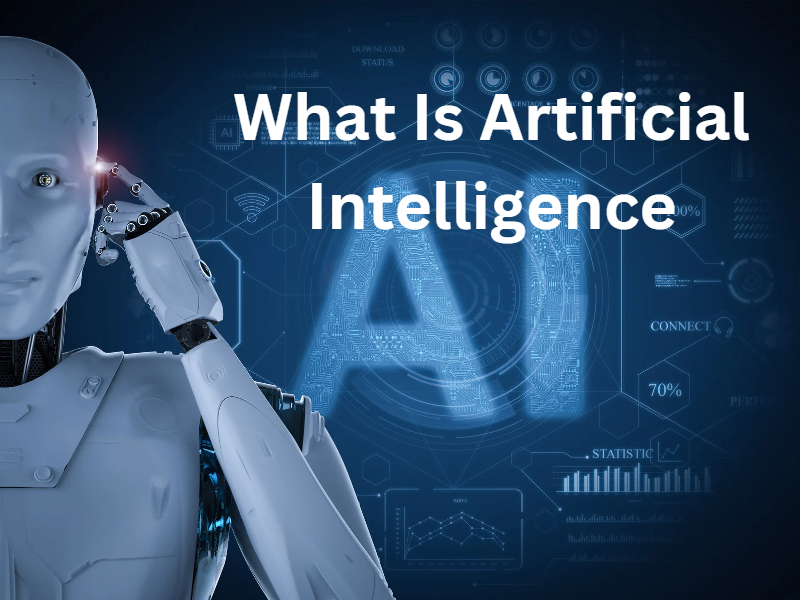Artificial intelligence (AI) is a wide-ranging branch of computer science concerned with building smart machines capable of performing tasks that typically require human intelligence. While AI is an interdisciplinary science with multiple approaches, advancements in machine learning and deep learning, in particular, are creating a paradigm shift in virtually every sector of the tech industry.
Table of Content
- Artificial Intelligence (AI) tools offer many benefits across various industries and applications.
- Artificial Intelligence (AI) Has Advantages And Drawbacks Like Any Technology.
- Following Top 10 AI Tools Used Across Various Industries:
- Conclusion
AI is a broad area of computer science that focuses on making machines smart enough to do things that usually need human intelligence. AI is a science that can be studied from various perspectives. Even so, advances in machine learning and deep learning are changing the face of the tech industry virtually every way. Artificial intelligence allows robots to do things a human mind can do or even do better. Self-driving cars and virtual assistants like Siri and Alexa are spreading the use of artificial intelligence. Investment in AI is widespread across all sectors. Artificial intelligence (AI) systems analyze data with statistical models and algorithms to learn from the data and make decisions based on what it has learned.
There are many subfields within artificial intelligence, including machine learning, deep learning, NLP, CV, and automation. Machine learning is a type of artificial intelligence that includes teaching algorithms. To recognize patterns and make predictions or decisions based on the data they have seen.
Deep learning is a type of machine learning that learns and analyses data using neural networks with manyers. Artificial intelligence systems analyze large amounts of data with the help of algorithms and statistical models to draw conclusions or make decisions. AI systems are only as accurate and useful as the algorithms and models they use and the amount and quality of the data they are taught on. AI systems can work independently or with human help depending on the application and the desired result.
Artificial Intelligence (AI) tools offer many benefits across various industries and applications.
Here are some of the key benefits of AI tools:
Efficiency: Using artificial intelligence tools, humans can free up time and energy to focus on more meaningful activities. For example, AI-powered chatbots can handle customer queries 24/7, freeing human customer service representatives to focus on more complex issues.
Accuracy: AI tools can analyze large datasets quickly and accurately. Identifying patterns and making predictions based on that data. This has potential applications in fields such as medicine. Where AI-enhanced diagnostic tools can help in detecting disease and other conditions early.
Personalization: AI tools can analyze individual preferences and behaviour data. To offer personalized recommendations and experiences. For example, AI-powered shopping assistants can suggest products based on a customer's browsing history and purchases.
Cost savings: AI tools can reduce costs across various industries. Thus, by automating tasks and increasing efficiency. For example, AI-powered predictive maintenance in manufacturing. It can help prevent breakdowns and reduce repair costs.
Innovation: AI tools can help companies develop new goods and services by letting them analyze data and spot trends and opportunities. For example, companies can find new market opportunities and the customer wants by using AI to look at data from social media.
Decision-making: AI tools can help humans make better decisions by providing data-driven insights and predictions. For example, in finance, AI-powered tools can help identify investment opportunities. It also manages risk. Tools based on artificial intelligence have many applications. And expected to see significant growth in the coming years. As technology continues to advance.
Artificial intelligence (AI) has advantages and drawbacks like any technology.
Here are some of the disadvantages of AI tools:
Cost: The time, money, and effort put into developing artificial intelligence systems. Keeping AI systems updated and operational can also be expensive.
Lack of creativity: AI systems can be reliable and effective in many contexts. They cannot replace human ingenuity and insight. That's why AI tools may only cut it when it comes to jobs that call for original thought and expression.
Bias: AI systems can be biased due to the data. They are trained on their algorithms. This bias can lead to unfair and discriminatory outcomes.
Security risks: Threats to national security can also be posed by AI tools, which could be exploited in cyberattacks or put to other malicious uses.
Job displacement: As AI systems become more advanced, they may replace human jobs. This could lead to job loss and economic disruption.
Dependence: Overreliance on AI systems can also be a disadvantage. If these systems fail, humans may not have the necessary skills to perform the tasks.
Ethical concerns: As AI systems become more powerful, there are growing ethical concerns around their use. For example, some worry that AI could be used to develop autonomous weapons or violate people's privacy. It is important to weigh these disadvantages against AI's benefits. Use AI systems ethically.
Following top 10 AI tools used across various industries:
- Tensorflow
- PyTorch
- Scikit-learn
- Keras
- Microsoft Cognitive Toolkit
- Apache Mahout
- H2O.ai
- RapidMiner
- IBM Watson Studio
- Google Cloud AI Platform
- Chat GTP
A few artificial intelligence tools are available. Others may be more appropriate for a given task or industry.
Conclusion
Many powerful AI tools are available to help individuals. Helps organizations build, train, and release machine learning models within the expanding field of artificial intelligence. Selecting the most useful AI tool requires consideration of many factors. Such as the nature of the task and the industry in question. The creation of innovative AI programmes is made possible by these tools. It can boost productivity, streamline processes, and spark innovation in various fields.

Leave a Reply